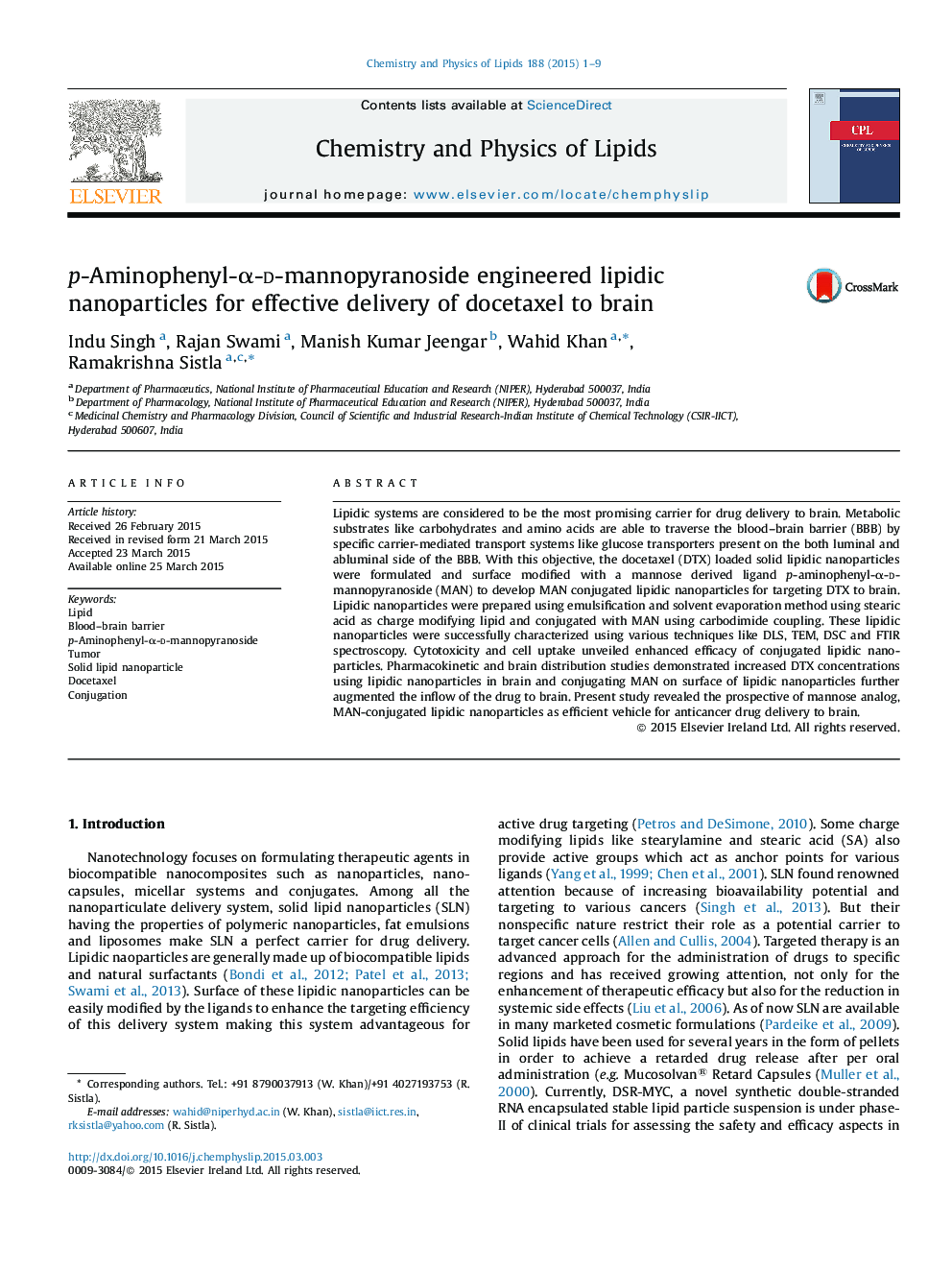| Article ID | Journal | Published Year | Pages | File Type |
|---|---|---|---|---|
| 1251663 | Chemistry and Physics of Lipids | 2015 | 9 Pages |
•Lipidic systems are considered to be the most promising carrier for drug delivery to brain.•Docetaxel loaded SLN were prepared using emulsification and solvent evaporation method and surface modified with carbohydrate derived analog p-aminophenyl-α-d-mannopyranoside for effective drug delivery to brain.•In vitro release studies depicted sustained release of mannose analog conjugated lipidic nanoparticles.•Cytotoxicity and cell uptake studies revealed enhanced efficacy of conjugated lipidic nanoparticles.•In vivo studies exhibited increased drug concentrations of conjugated lipidic nanoparticles in brain compared with that of unconjugated lipidic nanoparticles and marketed formulation.
Lipidic systems are considered to be the most promising carrier for drug delivery to brain. Metabolic substrates like carbohydrates and amino acids are able to traverse the blood–brain barrier (BBB) by specific carrier-mediated transport systems like glucose transporters present on the both luminal and abluminal side of the BBB. With this objective, the docetaxel (DTX) loaded solid lipidic nanoparticles were formulated and surface modified with a mannose derived ligand p-aminophenyl-α-d-mannopyranoside (MAN) to develop MAN conjugated lipidic nanoparticles for targeting DTX to brain. Lipidic nanoparticles were prepared using emulsification and solvent evaporation method using stearic acid as charge modifying lipid and conjugated with MAN using carbodimide coupling. These lipidic nanoparticles were successfully characterized using various techniques like DLS, TEM, DSC and FTIR spectroscopy. Cytotoxicity and cell uptake unveiled enhanced efficacy of conjugated lipidic nanoparticles. Pharmacokinetic and brain distribution studies demonstrated increased DTX concentrations using lipidic nanoparticles in brain and conjugating MAN on surface of lipidic nanoparticles further augmented the inflow of the drug to brain. Present study revealed the prospective of mannose analog, MAN-conjugated lipidic nanoparticles as efficient vehicle for anticancer drug delivery to brain.
